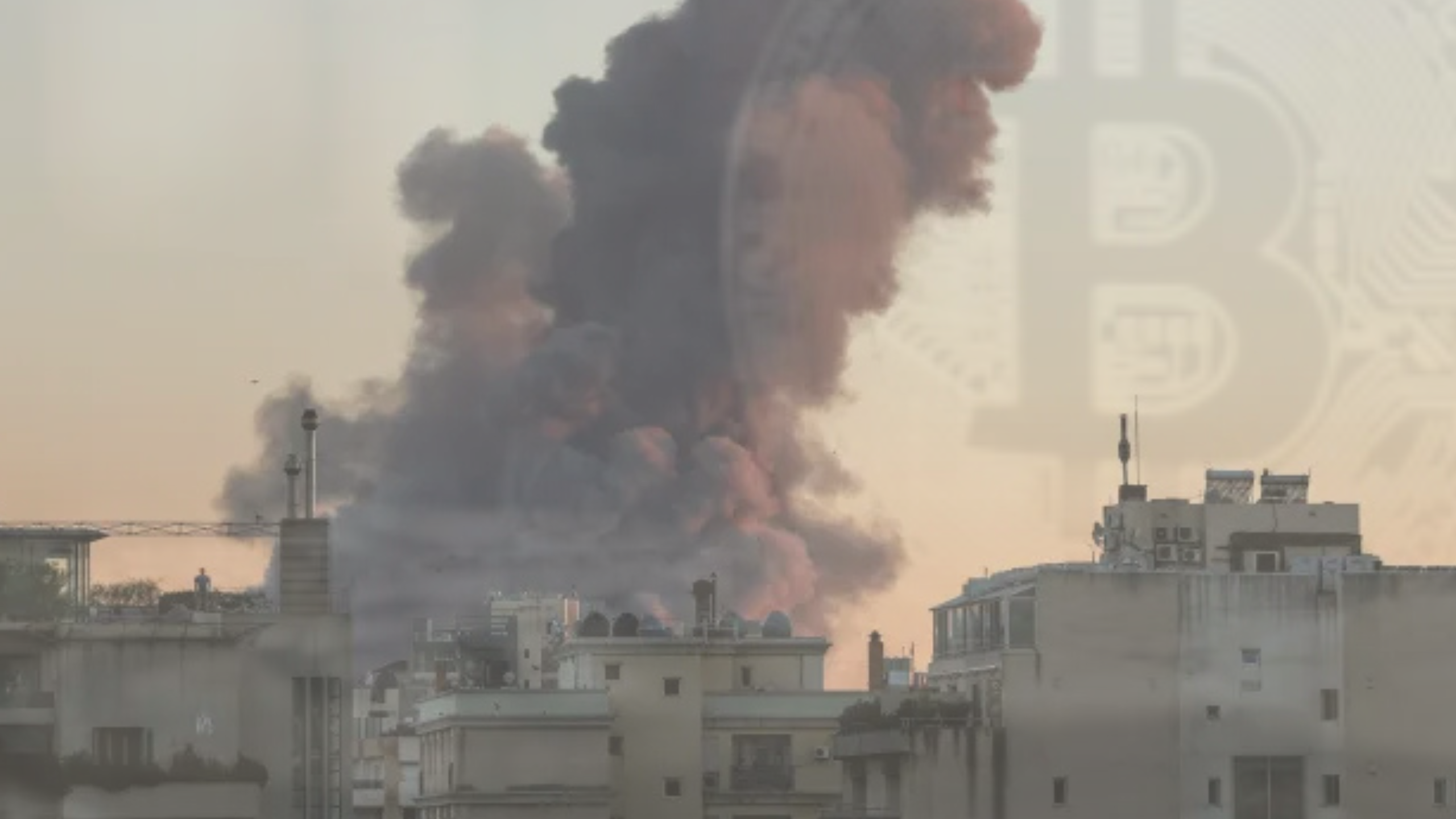I was sitting in my dentist's chair when I received a message from my wife: "They are bombing us."
The roads I’m so used to driving became treacherous as airstrikes rang out around me, some as close as 500 metres from my home. Within hours, my family and I packed the bare minimum and fled south Lebanon, along with 1.5 million others. I left behind my house, my possessions — everything I had worked for.
Israel’s relentless aggression against Lebanon and ground invasion, which has killed over 2000 people so far, led us to seek refuge in a nearby village called Maghdusha, before eventually evacuating through a humanitarian Ukraine-chartered flight to Europe. My heavily pregnant wife, our two children and I made our way out to safety, leaving behind our family and friends.
One month prior to this, I had submitted a project for review at work detailing a step by step process on how to use Bitcoin in countries afflicted by the instability of war and autocratic invading powers. The guide explains to fellow citizens of our region the self-preservation value of Bitcoin, given the contexts we’re forced to survive in and the failure by and large of centralised systems in protecting both our lives and wealth. I hadn’t expected to become a prime example for my own work so soon.
Whilst I had to abandon my home, the warmth of a homeland, the familiarity of it and the tangible love of our loved ones, Bitcoin has ensured that my financial sovereignty remains intact. In those difficult few weeks before evacuation it was a lifeline in more ways than I could have imagined – and matters could have been much worse if not for it.
Through its decentralised, borderless nature, it has allowed me to carry my wealth with me. No bank can freeze it, no regime can confiscate it, and no war can destroy it.
Bitcoin plays a critical role in self-preservation, especially in times of crisis. It’s not just a speculative asset; it's an essential tool for humanitarian needs, using it to bypass corrupt financial systems and deliver directly to those in need – especially now in Lebanon.
For people who have lost everything—homes, belongings and sense of security—Bitcoin offers the chance to preserve at least a small part of their life’s energy, as it has done for me.
This journey has been transformative, and I know it’s just the beginning. As I begin to rebuild life for my family and I until the war is over, I’ll be working vigorously to help aid my people reclaim a semblance of their freedom, if only financially. Traversing the plains of war, invasion and autocracy requires skills in survival, and where we may excel in courage and will power, we must match with financial freedom.
Marco Younes is Kawaakibi Foundation's Bitcoin coordinator. He founded Bitcoin du Liban, Lebanon's largest Bitcoin education initiative.


